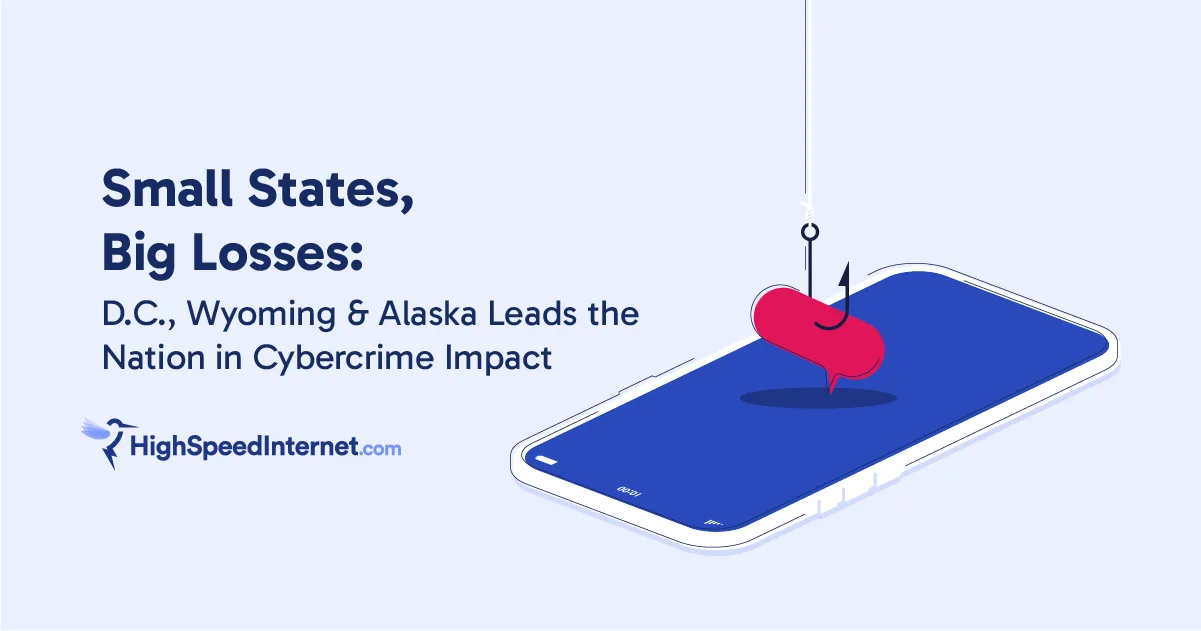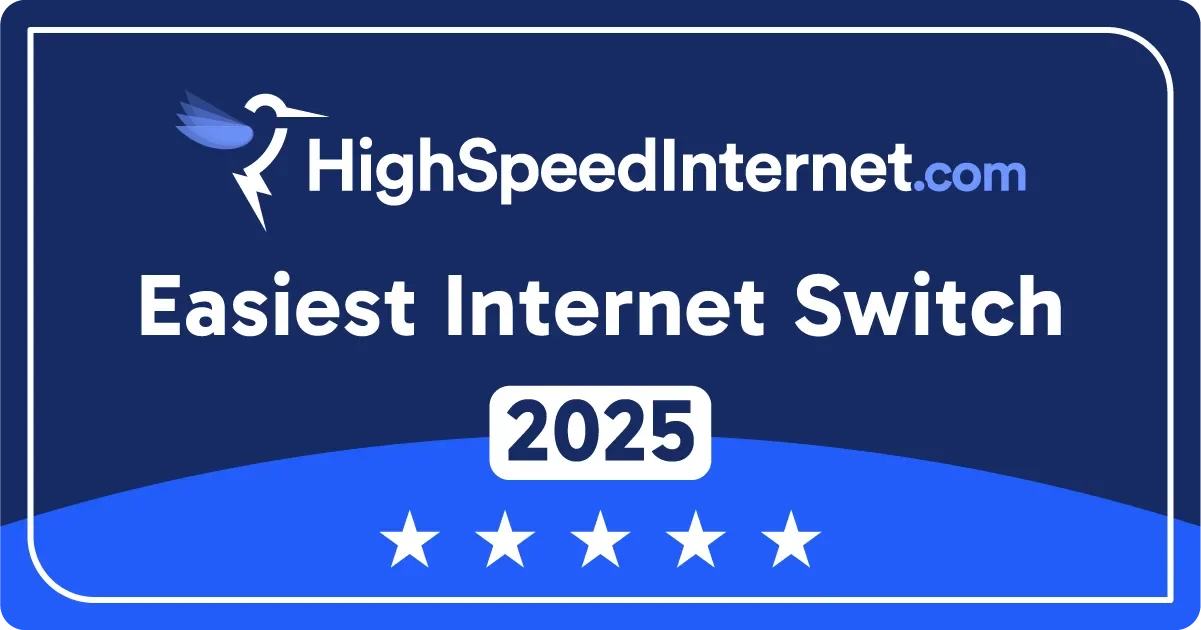States with Access to Faster Internet Have More Successful People
Aug 28, 2018 | Share
Industry Exclusive/Entertainment
Access to fast internet may be the secret to success.
Using ACT scores, college graduation rates, and average household income, we found significant correlations between these metrics of success and states with access to faster internet. We highlighted the standouts in the maps above. (We included Washington DC, as a state for this analysis.)
While these correlations don’t necessarily suggest faster internet is the cause of this success, they do show it is an indicator of potential success.
Shopping around for new internet?
Enter your zip code below to see which providers are available in your area.
Eight of the top ten states with the highest average download speeds also fall within the top 20 states bringing in the highest average household income.
These states rank among the best for both internet speed and household income:
- Alaska
- Delaware
- Illinois
- Rhode Island
- New Jersey
- New York
- North Dakota
- Washington DC
We found a statistically significant correlation between the average download speed in each state and the average household income. This means the average person living in a state with a fast internet speed will likely have a higher household income than the average person living in a state with slower internet speed.
This could be written off as a byproduct of people with higher incomes having more money to spend on faster internet packages. However, other correlations we found suggest the link between success and access to faster internet starts before people even begin their careers. We’ll discuss those links in the next three sections.
Eight of the top ten states with the highest rates of access to broadband internet speeds (25 Mbps download) also fall within the top 20 states with the highest college graduation rates (earning a bachelor’s degree).
In all eight of the states highlighted, over 95% of the population has access to broadband internet:
- Connecticut
- Delaware
- Maryland
- Massachusetts
- New Jersey
- New York
- Rhode Island
- Washington
Hawaii and Washington DC were both among the top ten for broadband access but were curiously near the bottom for bachelor’s degrees. The correlation between a state’s broadband access and its college graduation rates was strong enough to remain significant despite these two big outliers.
Clearly, academic achievement is linked, in some way, to high-speed internet. And that connection begins before going to college.
Nine out of the top ten states with the highest rates of broadband internet access also rank in the top 50% for average ACT composite scores.
These nine states rank among the best for both broadband access and ACT scores:
- Connecticut
- Delaware
- Maryland
- Massachusetts
- New Jersey
- New York
- Rhode Island
- Washington
- Washington DC
The download speed correlation holds true for ACT scores too.
Eight out of the top ten states with the highest ACT composite scores fall within the top half of states with the highest download speeds.
The following states excelled in both internet speed and ACT scores:
- Connecticut
- Delaware
- Massachusetts
- Michigan
- New Jersey
- New York
- Rhode Island
- Washington
While ACT scores aren’t the only factor colleges consider when accepting students, they do play a role. And our final correlation suggests that ACT scores are also linked to success.
Eight of the top ten states with the highest average ACT composite scores also fall within the top half of states for average household income.
New Hampshire was the only state to rank in the top ten for both average ACT scores and average household income.
The following states earned high ACT scores and incomes:
- Connecticut
- Delaware
- Massachusetts
- New Hampshire
- New Jersey
- New York
- Rhode Island
- Washington
Interestingly, the higher the average ACT score the stronger the correlation to household income. This stronger correlation at the top shows that if you had a high ACT score, your chances of having a high paying job are drastically improved.
Geography and economics likely play a role.
While our analysis focused on the connection between internet speed and success metrics related to higher education and income, that relationship is likely affected by other factors. Although we didn’t include these factors in our analysis, we can speculate about some potential factors based on patterns we saw in the data.
You may have noticed that most of the states highlighted in our maps are in the East, particularly the North East. This part of the country has many cities with large populations like Boston, New York, Washington DC, etc. These densely-populated areas are prime markets for internet service providers because their initial infrastructure investment can reach more potential customers. Naturally, they will offer their best products in those areas. This means people in major metro areas tend to have more internet access to faster speeds.
Population density only tells half the story. California has a lot of large cities, yet it doesn’t show up in any of these correlation highlights. We also need to consider other factors that could contribute to higher household incomes. These, again, could be geographic.
All eight of the Ivy League schools (plus MIT) are located in or near large metropolitan areas in the North East. This creates a high concentration of top-flight graduates in these areas, each with huge earning potential. As those grads get jobs, the average household income in those areas should naturally go up.
Drawing Conclusions
Our analysis doesn’t prove broadband access or internet speeds directly cause higher success rates. Other contributing factors, like those discussed above, complicate the evaluation.
What we can see from this analysis is that people in areas with less broadband access could be at a disadvantage academically and beyond. While faster internet service in those areas may not be all it takes to solve that problem, it may help. Some rural states, like Kentucky, are already taking steps to improve their internet infrastructure.
Hopefully recognizing these correlations will contribute to the ongoing conversation around internet accessibility and economic success. People everywhere deserve an equal opportunity to pursue their education and career goals.
Methodology
HighSpeedInternet.com looked at data from the FCC, the Census Bureau, EdWeek.org, and HigherEdInfo.org and found a statistical significance (using a p-value of .03) between the following measures of internet access and metrics of relatively successful people:
- Average Download Speed vs. ACT Composite Scores
- Average Download Speed vs. Median Household Income
- Median Household Income vs. ACT Composite Scores
- Percentage of Population with Access to Internet Speeds Over 25 Mbps vs. ACT Composite Scores
- Percentage of Population with Access to Internet Speeds Over 25 Mbps vs. Six-Year Graduation Rates of Bachelor’s Students
Author - John Dilley
With over five years writing about the internet industry, John has developed a deep knowledge of internet providers and technology. Prior to writing professionally, John graduated with a degree in strategic communication from the University of Utah. His education and experience make his writing easy to understand, even when covering complex topics. John’s work has been cited by Xfinity.com, PCMag, The Washington Post, Los Angeles Times, and more.










